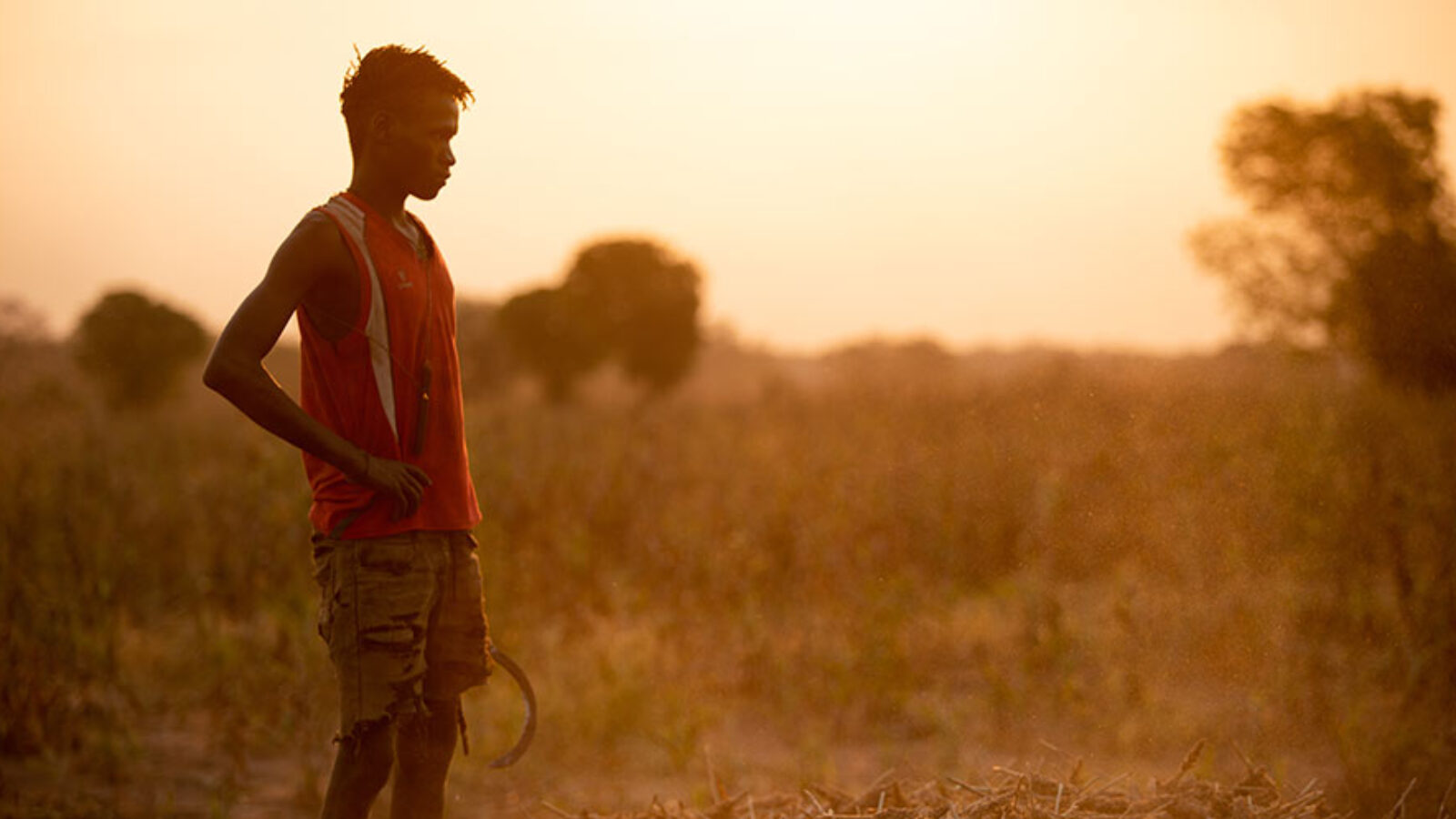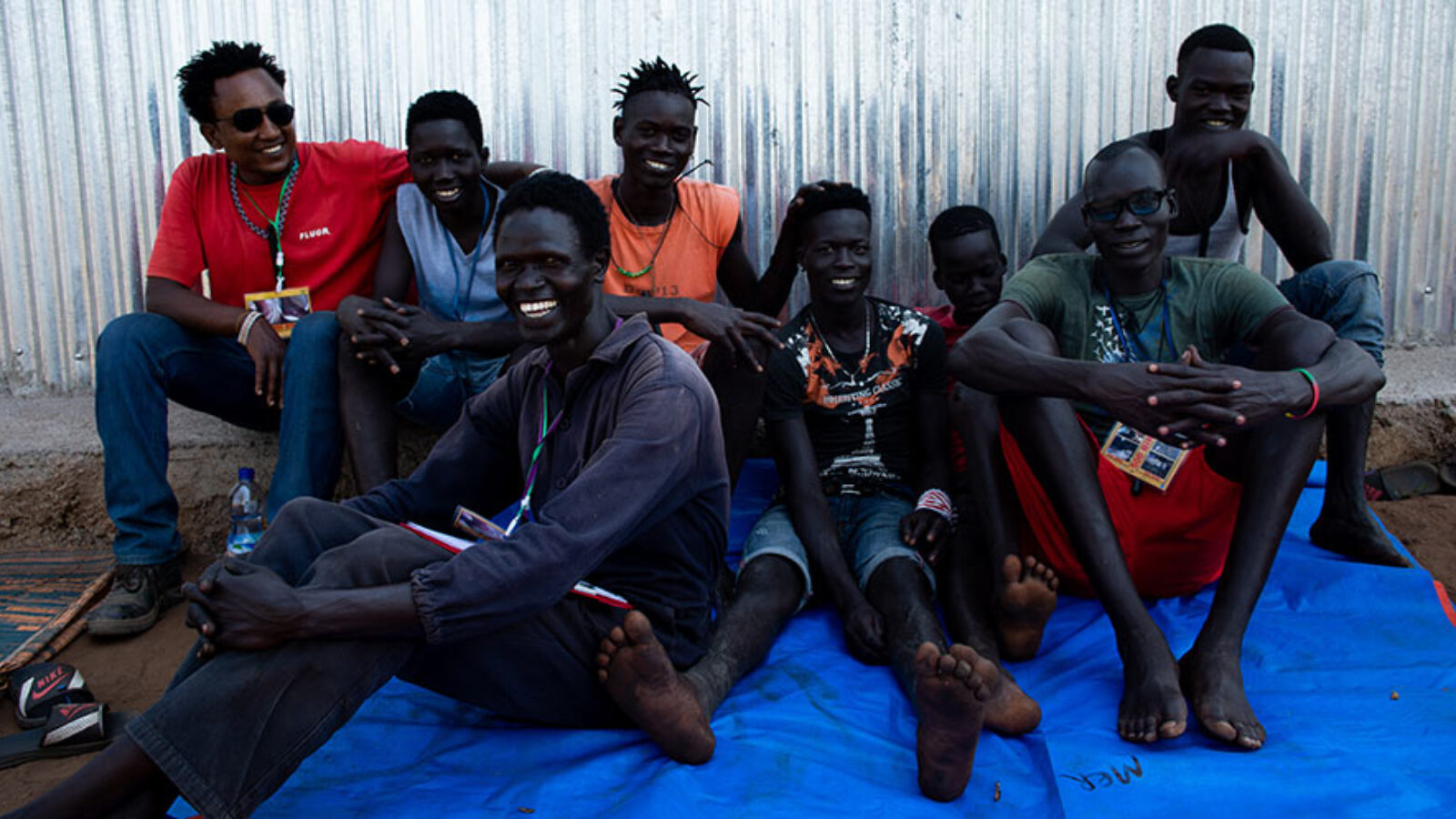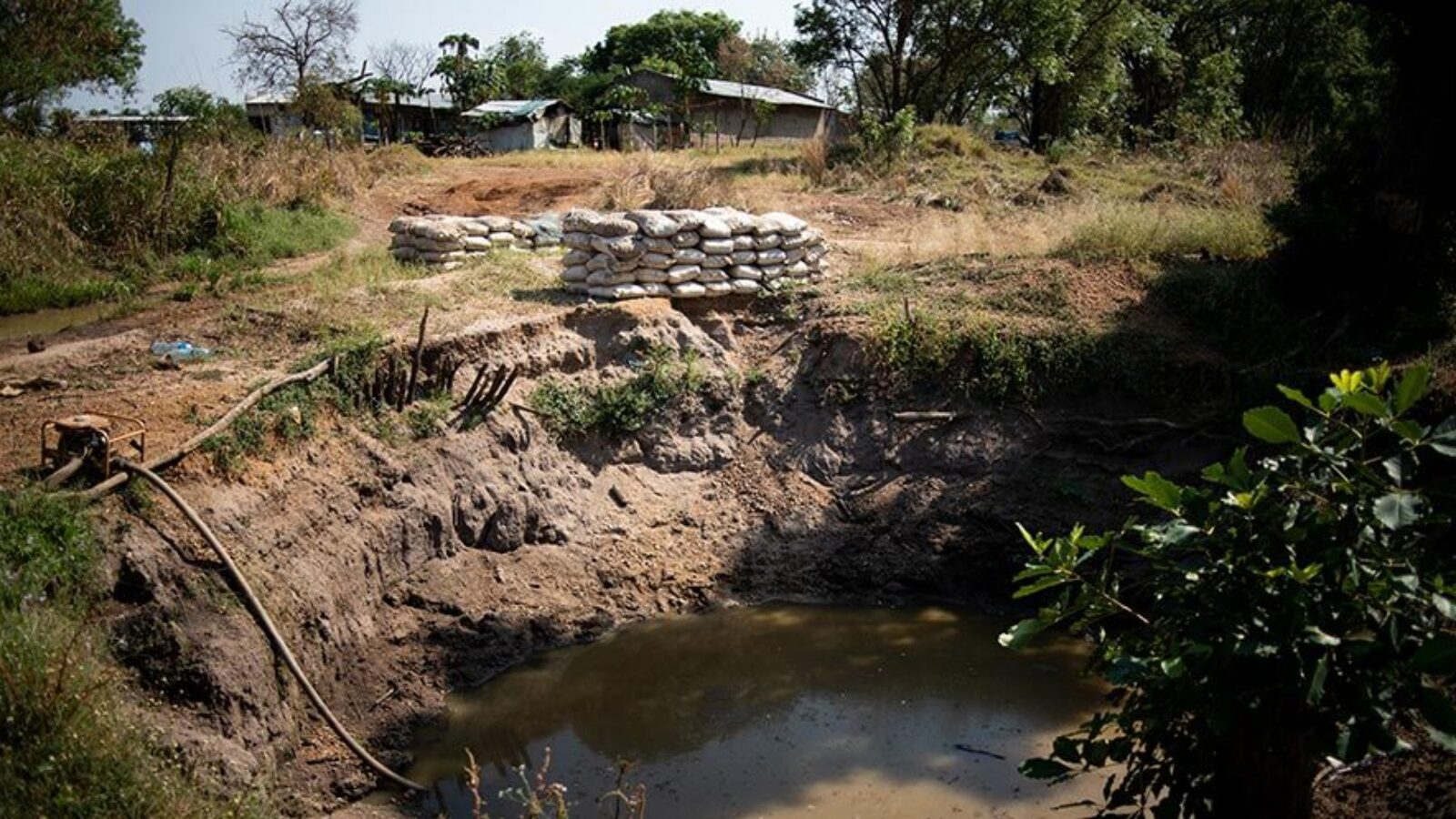Ethiopian Commercial Farms Weed Out Tropical Diseases
Programs to combat neglected tropical diseases usually are aimed at people in villages at the end of the road and occasionally in big cities where all roads lead.
But laborers in the fields of large commercial farms in Ethiopia’s Gambella region are often neither here nor there, leaving them vulnerable to contracting, and in some cases spreading, debilitating diseases. While The Carter Center and Ethiopia Dracunculiasis Eradication Program have been working for decades to eliminate Guinea worm disease among agricultural laborers through behavior modification, the Center pioneered outreach to agricultural workers in the field for other diseases with a game-changing malaria project in 2013. Building on those successes, the Center and Ethiopia’s Federal Ministry of Health are seeking to eliminate river blindness, lymphatic filariasis (LF), and Guinea worm ― a goal once thought impossible.
“To achieve elimination, we must ensure everyone in endemic areas is protected, including people who travel from all over the country for temporary work on commercial farms,” said Aderajew Mohammed, the Carter Center’s Ethiopia health program director. “The Federal Ministry of Health is doing excellent work toward interrupting transmission of these diseases. We have a very good and effective working relationship with the ministry.”
Agricultural workers are at risk for Guinea worm disease due to the lack of safe sources of drinking water, as evidenced by a 2017 outbreak that arose from a contaminated pond on a commercial farm in Gambella region. Health agents and Carter Center-trained volunteers show the workers photos of Guinea worm cases, remind them to always filter water before drinking it, and tell them about a cash reward available for reporting suspected cases.
“We don’t want anyone drinking bad water and getting a Guinea worm,” said Haile Teklay, manager of Gambella’s sprawling Seife farm (which was not involved in the 2017 outbreak). “If our workers are not healthy, the planting and harvesting will stop, the crops will not be delivered, and the workers will not have income.”
Obang Adhom isn’t going to let that happen on the neighboring Mulé commercial farm, where he and his Guinea worm prevention team are stationed by invitation of the owner. There are 81 watering holes and ponds of various sizes on the vast farm, plus a large stagnant canal nearby. These reservoirs form a perfect breeding ground for Guinea worm disease. More than 30 are in hard-to-reach wooded areas. Adhom leads a Spartan encampment of men (26 during rainy season, 10 during dry season) who treat all of those water sources with measured amounts of Abate® (donated by BASF), a chemical that kills Guinea worm larvae. Adhom developed and maintains a detailed rotating calendar to ensure every water source is treated every 28 days. The team has a hot, strenuous, dangerous job. The canal is teeming with crocodiles, the woods are full of snakes, and lions have strolled through the camp.
“It’s very hard work,” Adhom said, but he is committed to it. He formerly was a Guinea worm volunteer in his home village but agreed to go to the farm to meet the need. “But I am here, and I will stay until they call me back to the village,” he said.
Back at the Seife farm, water is drawn from a large dug-out pit and trucked out to the fields three times a day for the workers ― as many as 400 during peak seasons ― to drink. In accordance with guidelines from The Carter Center and the health ministry, the water is filtered to strain out Guinea worm-infected water fleas as it is transferred to barrels in the field. As an extra precaution, workers are issued personal pipe filters when they are hired and encouraged to use them when drinking water.
Agricultural workers in Gambella are at risk of river blindness and lymphatic filariasis (LF) as well. Teklay, the Siefe farm manager, directs groups of laborers to stop working and listen as health agents and Center-trained volunteers called community-directed distributors explain the two diseases and their prevention. They learn how infected black flies transmit the parasite that causes river blindness, infected mosquitoes transmit the parasite that causes LF, and how the drugs Mectizan® (donated by Merck) and albendazole (donated by GSK) kill the respective parasites. The workers (including Teklay and other managers) are then measured for the proper dosage, handed the tablets and a glass of water (which they drink through a personal pipe filter as another precaution against Guinea worm) and registered in a record book.
All of these measures are part of a comprehensive effort to free all Ethiopians of a set of diseases that hinder the nation and its people from reaching their full potential. In towns, villages, farms and waterways, Ethiopia is pushing hard to eliminate Guinea worm, river blindness, and LF, and The Carter Center is there to help make it happen.
Global Impact Starts with You
Your support sustains the Carter Center's mission of waging peace, fighting disease, and building hope around the world.




